The terrorist attack last week at Kabul airport stunned the world.
Beyond the killing and the sense of humiliation that was hard not to feel even if you are not American, this attack has once again made headlines global jihad, and to be precise - the sense that what is happening now in Afghanistan is the introduction to the return of global terrorism that has hit the West hard in the past two decades.
It will be said immediately: quite a few experts believe that the opposite is true.
That the world has changed, that terrorism has changed, that even Afghanistan has changed, and that what happened at the beginning of the millennium must not be tapped into what will happen now.
Despite this, there are concerns about what to base - from the Taliban's historic cooperation with terrorist organizations, to the fact that one of the first moves of the new administration in Afghanistan was to open the prison gates and release thousands of terrorist operatives.
The exact number is unknown, but intelligence agencies in the West estimate that among the released were between 2,000 and 6,000 ISIS members.
Go out and figure out what will happen if they start scattering across the Middle East and Europe.
According to a report by the Institute for National Security Studies, in 2020 there was a 14 percent decrease in the number of suicide bombings compared to the previous year, a continuation of the significant decline that began since 2018. Most of the attacks were the Salafi jihadist organizations behind the Salafiya A modern radical Islamic movement that seeks to bring Islam back to its early days and to impose on its subjects the strict laws of Sharia.
Rash in two waves
Salafia has been around for decades, but its jihadist activities took shape around the war in Afghanistan in the 1980s.
Under the banner of the struggle against the Soviets were concentrated tens of thousands of Muslims from all over the region, who joined the Mujahideen (Islamist armed fighters) and participated in the great victory.
It was also the basis for the establishment of the Taliban regime in Afghanistan, first as an ideological movement of students in the city of Kandahar, and from 1995 - as a central government, which strictly ruled Afghanistan through Sharia law.
The terrorist activities of the Salafi jihad began in the late 1980s, but it flourished in two waves: in both, the basis for its flourishing was a state infrastructure, which provided it with extensive protection and infrastructure for training and planning - an issue that still exists today.
The first wave was in Afghanistan.
Under Taliban rule in its previous incarnation, al-Qaeda was established in the country, led by Osama bin Laden.
His first notable attacks were on August 7, 1998, against U.S. embassies in Kenya and Tanzania. Suicide bombers used by suicide bombers exploded near the two embassies, killing 212 people and injuring about 4,000 in Nairobi. Relatively isolated.
Following the attacks, President Bill Clinton ordered a response attack on al-Qaeda bases.
Cruise missiles were launched at facilities in Sudan and Afghanistan, which were allegedly used as training bases of the organization.
In retrospect, it turned out that the target in Sudan was a drug factory unrelated to al-Qaeda, and that the damage to Afghanistan was only minor.
Al-Qaeda has only intensified in the wake of these attacks.
It has become a magnet for many young people from all over the Muslim world, who have sought interest or meaning.
From Afghanistan, the organization led another resounding attack against the Americans, in October 2000: a booby-trapped submarine exploded near the American destroyer "Cole", which docked at the port of Eden in Yemen.
17 sailors were killed and 39 wounded.
Less than a year later, on September 11, 2001, the organization led the largest terrorist attacks in history.
Two planes hijacked by the organization's men, trained in piloting, crashed into the Twin Towers in New York.
A third plane crashed on the Pentagon building in Washington, D.C., and a fourth plane, whose passengers managed to fight the hijackers, crashed in an open field in Pennsylvania before reaching its destination in Washington.
2,977 civilians were killed in the attacks, and more than 6,000 were injured.
The 9/11 attacks marked the beginning of the global war on terror.
The United States has invaded Afghanistan, with the stated goal of defeating al-Qaeda.
Two decades later, the second and third targets appear to have suffered a scorching failure.
The first goal was significantly, but not entirely, successful.
Even after the American invasion of Afghanistan, al-Qaeda continued to exist and operate.
The most notable attack he carried out was in 2004 in Madrid, when ten explosive devices exploded at the same time in the cars of passenger trains.
191 civilians were killed and more than 1,500 were injured.
Despite this, al-Qaeda has gone on the defensive.
Its leaders were forced to leave Afghanistan and became persecuted.
Many of them were eliminated or arrested.
Bin Laden himself was assassinated in Pakistan on May 2, 2011, in an operation by the US Navy "Sea Lions".
The organization continued even later, under the leadership of Ayman a-Zawahiri, the spiritual father and prominent religious authority in al-Qaeda.
In recent years, several audio tapes, the reliability of which is unclear, have been released to prove that he is alive and in control of the organization.
A $ 25 million reward is regularly placed on his head, which will be given to anyone who provides information that will lead to his capture or assassination, although an Israeli security source said this week that intelligence in the West is not at all clear whether he is alive and functioning.
In recent years, the decline of the organization has been felt.
One by one, organizations operating under its wings disengaged from it;
Some moved to operate independently, and some took on the authority of the new king - ISIS.
Evacuation of wounded after the attack at Kabul airport, last week.
The world was surprised, Photo: Reuters
Decentralized terrorism
ISIS (or "Islamic State") was established in 2004 as a branch of al-Qaeda in Iraq, and was known in its early days as al-Qaeda in Iraq.
His main goal then was to fight the United States, which had invaded Iraq as part of its global war on terror.
The organization has left behind an endless path of terrorist attacks and bloodshed.
In the first decade of its existence it was responsible for the deaths of hundreds of civilians, most of them Iraqis.
Like his father, al-Qaeda, ISIS also fought infidels (moderate Sunnis and Shiites), and "crusaders" - foreigners of all faiths, led by Americans and Europeans.
The United States eliminated ISIS leaders several times. In 2006, its founder and first leader, Abu Musab al-Zarqawi, was assassinated. Terrorism - Ibrahim Awad Ibrahim Ali al-Badri, better known as Abu Bakr al-Baghdadi.
Under al-Baghdadi's leadership, ISIS has become the largest and most influential terrorist organization in modern history.
As in Afghanistan, he took advantage of a geopolitical situation to position himself: the Syrian civil war, which undermined President Assad's rule and ripped him from the country;
And the growing alienation felt by the Sunni residents of northern Iraq toward the pro-American administration in Baghdad.
In February 2014, ISIS disengaged from al-Qaeda after refusing to comply with al-Zawahiri's order to cease operations in Syria.
Four months later he garnered his main achievement so far, when he conquered the city of Mosul in Iraq.
More than 1,000 Iraqi soldiers captured were executed in what was the beginning of the organization's videotaped terror campaign.
Shortly afterwards, al-Baghdadi announced the establishment of a "mass suit," and in simple terms, an Islamic state.
He put himself at the head and called himself "Emir of the Believers."
Its activities at the time bothered mainly the residents of Iraq and Syria, and to a lesser extent the Americans.
It burst into Western consciousness in August 2014. Israel was then engaged in Operation Eitan in Gaza, when one evening a man dressed in black and a man in orange appeared on television.
It was a carefully crafted short video, and at the end of it, the black man wore the orange man's head - American press photographer James Foley.
ISIS has become a global event overnight.
He soon established his status as a leading terrorist organization, and terrorist organizations from all over the world joined him one by one - many of whom had until then identified with al-Qaeda.
Thousands of young people enjoyed the ideas he spread.
ISIS soon expanded its sphere of control and established what it called the "Islamic State in Iraq and al-Sham."
Its fighters have occupied large areas of Iraq and Syria and ruled them with strict laws - from lack of rights for women to harsh punishments for criminals and infidels.
The organization also has an economic mechanism that funded its activities and the activities of its emissaries around the world: it was based mainly on tax collection, oil trade from wells found in the territories it took over, and protection of all kinds - including ransoms of millions for the release of abducted people.
ISIS has wonderfully documented and disseminated its travels on social media, ranging from mass executions by various and odd methods (such as the burning of the Jordanian pilot), to the horrific enslavement of thousands of Yazidi girls, who had been captured.
Advertising had a dual purpose: one - to instill fear in the hearts of its enemies;
And the other - to make believers connect with him and act inspired by him.
ISIS has become the biggest threat to its opponents.
He managed to mobilize a rare coalition around him, which included not only the West and the moderate Sunni countries in the Middle East, but also Russia, Shiite Iran and Turkey.
At the same time, the organization has become a magnet for confused or bored young people from all over the world.
Men came to him who wanted to fight, and also women who wanted to serve the struggle on their way.
Many of those who joined did not come from the Middle East but rather from the West: members of immigrants from Europe and North America, who were tired of living in poverty and humiliation and looking for a way to revenge.
Unlike al-Qaeda, ISIS did not have a centralized and remotely controlled attack mechanism.
His method was decentralized.
He called on his followers, wherever they were, to carry out attacks in any way, as long as the perpetrators - in California or Paris, Berlin or London - declared that the attack was carried out on behalf of the organization and for its purposes.
ISIS Khorsan (ISIS - K), the Afghan branch of ISIS.
Hate the Taliban too,
Some of the activities were carried out by organizations that took over his authority.
Some wanted to enjoy the glory, and some of the funding he passed on to them.
Such branches of ISIS operated on a variety of continents, including within Israel's borders.
Prominent among them were the ISIS branch in Sinai, which is still active, and another branch in the Syrian Golan Heights, which disappeared when the Syrian army regained control of the border area with Israel.
Both almost completely refrained from activities against Israel, and focused on fighting the locals.
2016 was the peak year in ISIS activity.
Along with the continuation of the occupation and fighting campaigns, the organization and its partners carried out about 330 suicide bombings, in which about 4,500 people were killed.
But this extensive and multi-armed activity also eventually led to its collapse.
The coalition he formed around him led to a widespread war against him, to which he added other goals - chief among them the Russian fear of the fall of Syria, the American fear of the fall of Iraq, and the fear of regimes in the region that are next in line.
All of these have joined the widespread offensive in history against any terrorist organization.
It was attended, at its peak, by more countries than those that fought in World War II.
In 2017, the Islamic State was defeated, and in 2019 it lost its last force base in Syria.
In the same year, al-Baghdadi was killed in a raid by an American Delta force on the compound where he was staying in the area of the Syrian city of Idlib.
A bloody decade
The past decade has been the bloodiest in terms of terrorist attacks.
It has carried out more than 3,000 suicide bombings in 45 countries, killing about 31,000 people and injuring about 57,000.
In the peak years, 2016-2014, there were about 500 terrorist attacks a year.
The defeat of ISIS led to a gradual decline in terrorist attacks.
In 2019, 149 suicide bombings were carried out by 236 suicide bombers;
In 2020, 127 attacks were carried out, in which 177 suicide bombers took part.
Most of the attacks were concentrated in three main countries: Afghanistan, Somalia and Syria.
In Afghanistan, about 57 suicide bombings were carried out last year, which is almost half of the total number of suicide bombings recorded in the world.
There were about 37 terrorist attacks in Africa, and about 33 terrorist attacks in the Middle East, 19 of them in Syria.
Most of the attacks were the responsibility of the Salafi jihadist organizations;
ISIS's share in them has shrunk significantly, and the share of organizations ideologically affiliated with al-Qaeda has risen accordingly.
Some of the attacks in Afghanistan were carried out by the Taliban, and another by ISIS Khorsan (ISIS - K), the local branch of ISIS and a rival of the Taliban.
ISIS Khorsan perceives the Taliban as not extremist enough and not loyal enough to Sharia law.
Many of the members of the organization were released from prison a few weeks ago, which raises questions about the logic of his release.
No less than the attack on Kabul airport hit the Americans, it hit the Taliban, which was perceived as failing to bring to the country the "peace and prosperity" it had promised.
Intelligence organizations in the West and Arab countries are following with concern what is happening in Afghanistan.
Everyone and his harassment.
Some are common to the entire "good camp," the main one being what was perceived as a US defeat, and the possible implications for its status in the region and the backlash that terrorist organizations (and to a large extent also "terrorist armies" like Hezbollah and Hamas) received.
Another major concern is that Afghanistan will once again become a terrorist base.
It did so enthusiastically in the 1980s and 1990s, and nothing in the Taliban's conduct in recent years shows that it has become an organization that advocates peace.
Although its leaders have been careful to spread conciliatory messages in recent days, they seem to be mostly looking for quiet from home to allow their government to be established, and money from outside, so that they can survive.
Afghan citizens are trying to enter Kabul airport.
"Al Qaeda and ISIS will try to stir up the masses," Photo: Reuters
"The annual budget of the Afghan government is $ 20 billion a year," explains Maj. Gen. (Res.) Amos Yadlin, head of the Institute for National Security Studies and former head of the National Security Agency. "Two billion of that comes from tax money, and the rest from donations in the West.
Even if they now get a little more money from China, and smuggle a little more drugs, it will not close the gap for them.
They need to run a country, so they will be much more careful and will not rush to sign a divorce with the West. "
Prof. Eyal Zisser of Tel Aviv University is also not convinced that what was is what it will be.
"Every extremist has more extremism," he says. "ISIS has come out against al-Qaeda, and now it is also going against the Taliban. I'm not sure it will succeed. .
Click on the Americans
The Taliban also has complex relations with al-Qaeda.
Al-Qaeda carried out the 9/11 attacks without updating its rule in Afghanistan.
The result was that the terrorist organization lost its base, and even those who hosted it, the Taliban regime, lost control.
"In my opinion, the Taliban will not rush to bring back al-Qaeda, because it does not serve its interests," Zisser said. That's nothing. "
But the question is not just what the Taliban want, but what the terrorist organizations want.
For them, the events of recent weeks in Afghanistan have been a significant shot of encouragement.
The next expected step will be to accelerate the pressure on the Americans to withdraw from Iraq, a much more dramatic step, also for Israel.
While Afghanistan is a relatively backward and distant country, Iraq is at the heart of the Persian Gulf and has large oil reserves.
The departure of the Americans could hand over the country entirely to the Iranians, producing for them a continuous land route from Iran to Lebanon and the Mediterranean.
"For all extremism there is more extremism."
Prof. Eyal Zisser,
"We did not go back to 9/11," Yadlin said. "Britz-Carlton in Qatar and getting used to the good life. It's not certain he will run to refocus the arrows of the whole world on him."
"We always make the same mistake of relying on the past in an attempt to predict the future," says Yoram Schweitzer, a former member of the intelligence community and currently head of the Terrorism and Low-Intensity War Program at the Institute for National Security Studies.
In his estimation, al-Qaeda and ISIS will try to raise their heads and take advantage of the situation to stir up the masses, but they do not have the infrastructure they had.
"In 2014 there was a weakness of the Sunni provinces in Iraq, because they were deprived by the Iraqi government, so they did not fight Mosul. In Syria there was a weakness of the central government, because of the civil war. Al-Baghdadi gambled and established the Islamic State - and failed. That he will succeed in coming out well in a quarrel with the whole world. "
Schweizer also believes that Afghanistan will not be in a hurry to give a carte blanche to terrorist organizations to operate in its territory and territory: "They have learned the lesson. Otherness is very low, unless a black swan (an unusual and unexpected event; YL) like the Arab Spring happens again. "
"The first test will be to see if al-Qaeda is trying to re-establish itself in Afghanistan. To set up training camps. To act. To bring back some of the leadership from Iran. If that happens, it will be a serious signal."
Yoram Schweitzer, Photo: From Wikipedia
Without firing a single bullet
Experts are united in their view that in the absence of a state from which terrorist organizations can operate freely, they will find it difficult to replicate their success.
But at the same time, the prevailing opinion is that they will now try to take advantage of the momentum from the American escape from Afghanistan.
Iraq will be the focus, but not just it.
Security sources estimate that an increase in terrorist attacks by any possible terrorist organization is now expected.
"I have a hard time seeing al-Qaeda today as the leadership and creativity that it used to be," says Schweizer.
A-Zawahiri's fate is unknown.
The leader of the organization in recent years is Saif al-Adel, who apparently works from Iran.
The Iranians have a complex relationship with the organization - it is their rival, being Sony, but their partner in the war against the Americans.
In November last year, foreign media reported that the Mossad had killed Abdullah Ahmad Abdullah (aka Abu Muhammad al-Masri) in Tehran, who was responsible for attacks on US embassies in Kenya and Tanzania. The assassination took place on August 7, the 22nd anniversary of the attacks.
"For al-Qaeda to raise its head again, it needs an engine of growth," Schweizer says. "The war in Afghanistan in the 1980s was such an engine; it is doubtful if it exists today. "His activities are conducted under the radar, and especially in distant places, such as Nigeria, Niger, Cameroon and the Congo, or in Iraq and Syria. He is unable to reach the West."
The general feeling is that the level of threat from ISIS has dropped significantly.
This has happened in no small part thanks to the fact that the world has learned to better fight terrorism.
In the wake of the 9/11 attacks - and especially in the wake of the war against ISIS and the terrorist attacks it carried out in the West - intelligence organizations began to cooperate, exchanging information, coordinating moves.
At the same time, the traditional television networks decided to stop broadcasting ISIS snuff films, and as a result, social networks also began to censor and block information, and to block elements that distributed and consumed it.
It never took long, but he learned to cope.
Israel had (and still has) a central part in this.
While the Americans were bound by strict privacy laws (some of which were the result of Edward Snowden's defection, which was accompanied by the revelation of CIA surveillance software secrets), Israeli intelligence and technology did wonders.
An example of this was given in the wake of the 2015 terrorist attack in San Bernardino, California.
U.S. courts have refused a request from security officials to order Apple to break into the phone of the terrorist who carried out the attack, claiming privacy, and whoever did so for them is a small Israeli company called Azimuth.
But the main thing was international cooperation.
Very little has been published about Israel's role in the global war on terror in general, and in the war against ISIS in particular.
Since Syria has always been at the center of Israeli occupation, the National Security Agency and the Mossad had a clear advantage in gathering information and operating resources in an area that suddenly became a global point of interest.
In a careful assessment, information provided by Israel could thwart dozens of terrorist attacks in the West, some in less friendly countries, such as Turkey.
In addition, he served in quite a few operations conducted by the coalition against ISIS, mainly in Syria, but also in Iraq.
In other words: even without firing a single bullet, Israel played a significant part in defeating the Islamic State.
Morley's encouragement of terrorism
The damage to the centers of gravity of global jihadist organizations, and the absence of a guiding hand and strategic head in these organizations, meant that even when there were opportunities for super-terrorist attacks, they were not taken advantage of.
This was the case in 2019, when Muhammad a-Shamrani, a trainee in the Saudi Air Force pilot course who trained in the US, opened fire at a base in Florida and killed three Americans. , He wrote on social media shortly before he acted.
"It turned out that al-Qaeda in the Arab Peninsula had recruited him," says Schweizer. "He was sent to train in the United States and was supposed to stay there until the end of the course.
"Instead of just firing at the base, he could wait for the graduation ceremony and commit suicide with a plane over the crowd, or return to Saudi Arabia, take a plane there and carry out a mega-attack."
Instead, Shimrani carried out a relatively small attack.
In a country where there are daily shooting attacks, including masses, it was one more incident in the chain, which did not resonate widely.
As mentioned, the prevailing assessment is that despite what is happening in Afghanistan, global terrorism will have a hard time raising its head again.
On the other hand - this is also what they thought after the American invasion of Afghanistan and Iraq, and the tendency is to look for what was - but it is possible that in the next stage of global terrorism we will see a different mutation.
"The first test will be to see if al-Qaeda is trying to re-establish itself in Afghanistan," Schweizer said.
The women went back to wearing a burqa.
Kabul, this week.
"For the first time since 2018, there is a country that the Sharia controls," Photo: AP
Global terrorism has never made Israel a major target.
Israel may have been on the list of targets, but in a relatively low place, after American and European targets, after the effort to harm the relatively moderate Sunni regimes, and after the never-ending war between the Sunnis and the Shiites.
An unusual example of such an attack was in 2002 in Kenya.
Three Israelis and 13 Kenyans were killed in a combined attack on the Paradise Hotel in Nairobi.
Shoulder missiles fired at an Arkia plane taking off from Mombasa missed it.
An organization close to al-Qaeda was responsible for these attacks.
Subsequently, there were quite a few plans to harm Israeli targets, which were thwarted or did not materialize.
It is likely that the terrorist organizations also feared Israel's power in the region.
"They worked with the Salami method," says a senior security official. ".
Those who may take an example, and act, are actually other terrorist organizations that are working against Israel - the Palestinian organizations, and to a lesser extent Hezbollah.
"Such organizations could be dangerously inspired by what happened in Afghanistan," Schweizer said.
"What has happened in Afghanistan is a very significant moral encouragement to terrorism," Yadlin continues, "it has been proven that with a lot of patience and help from Allah, and even if you wait 20 years, you can win in the end from powers like the United States.
On the other hand, I would not panic.
We did not go back to September 11, 2001. "
shishabat@israelhayom.co.il

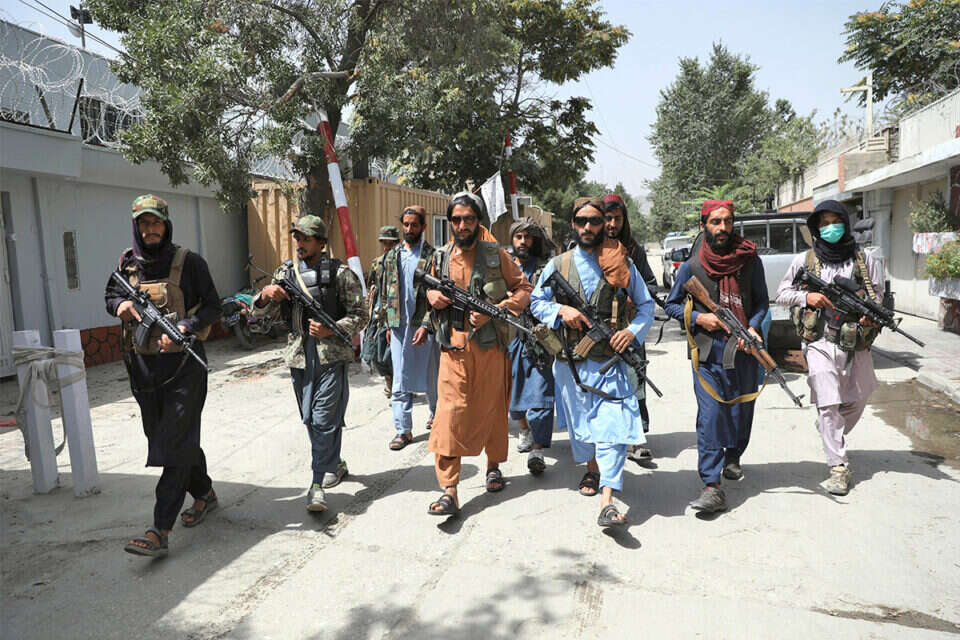
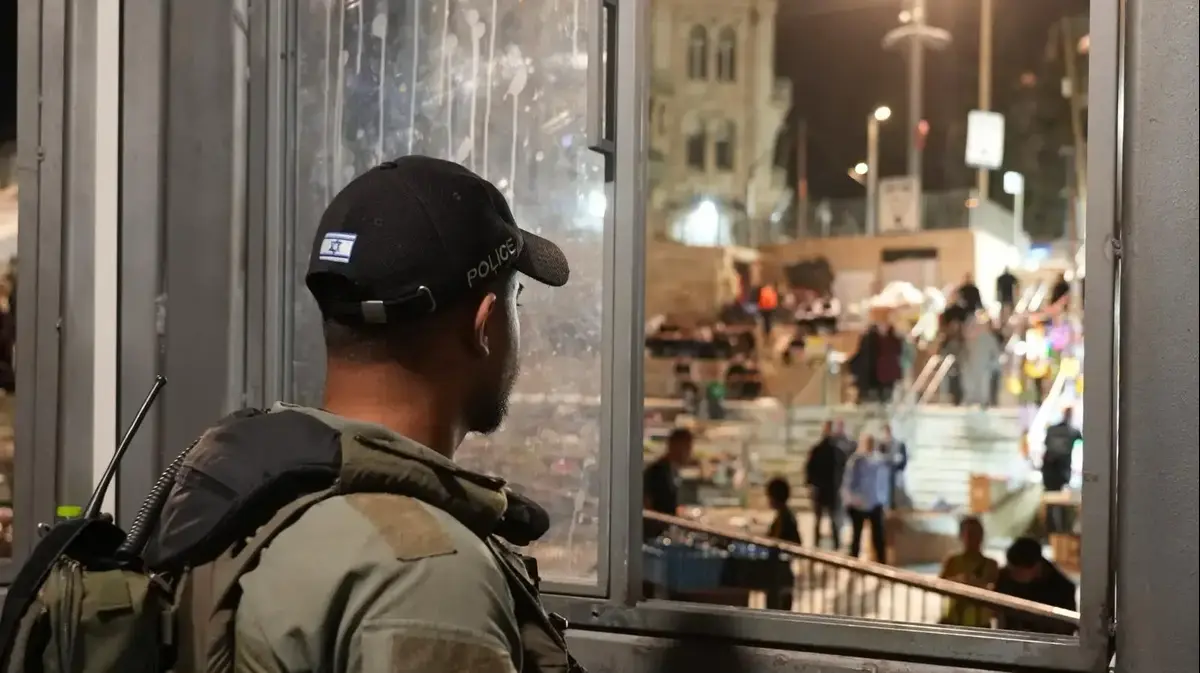
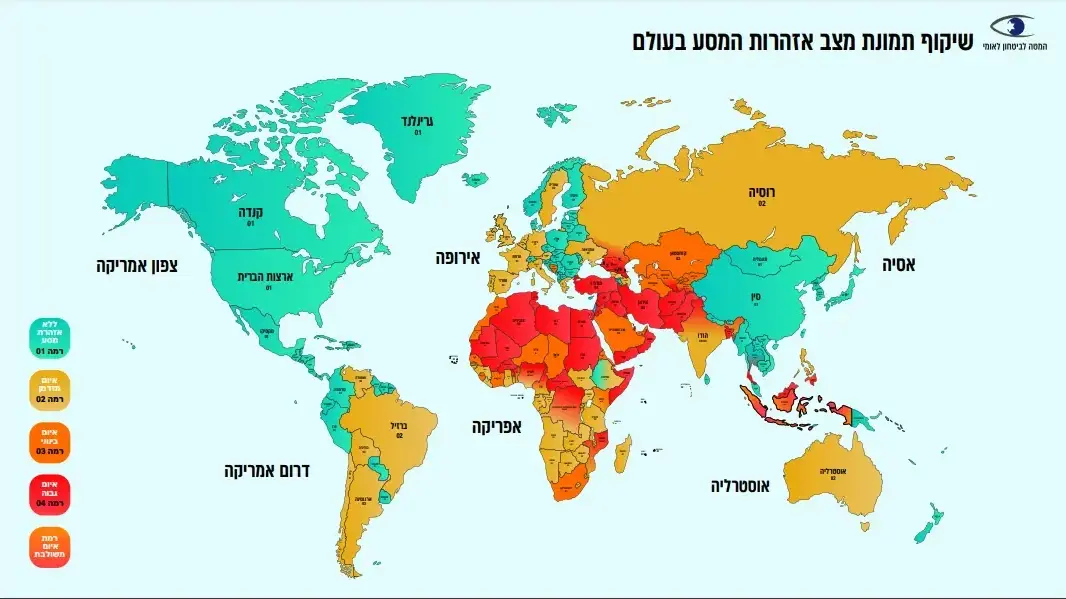

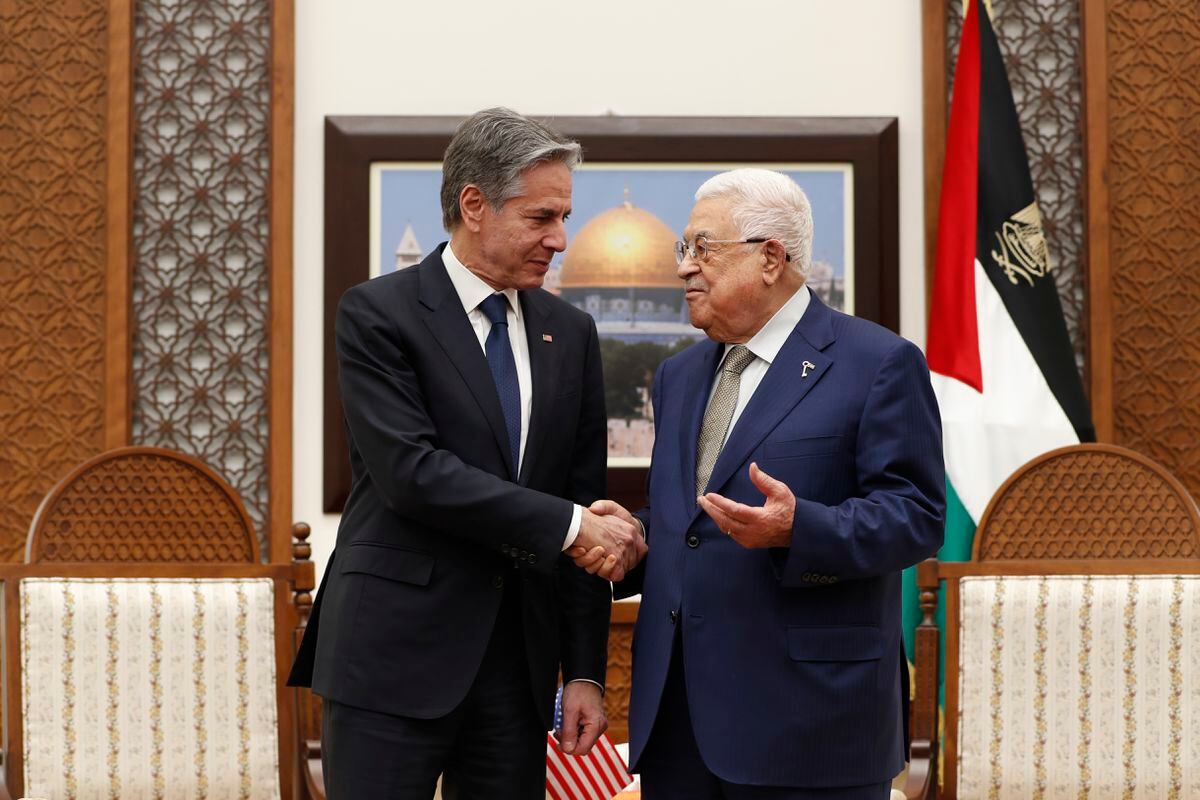
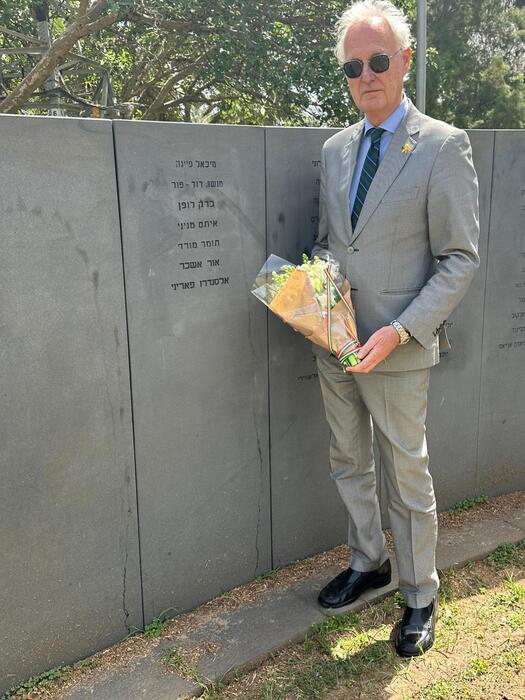
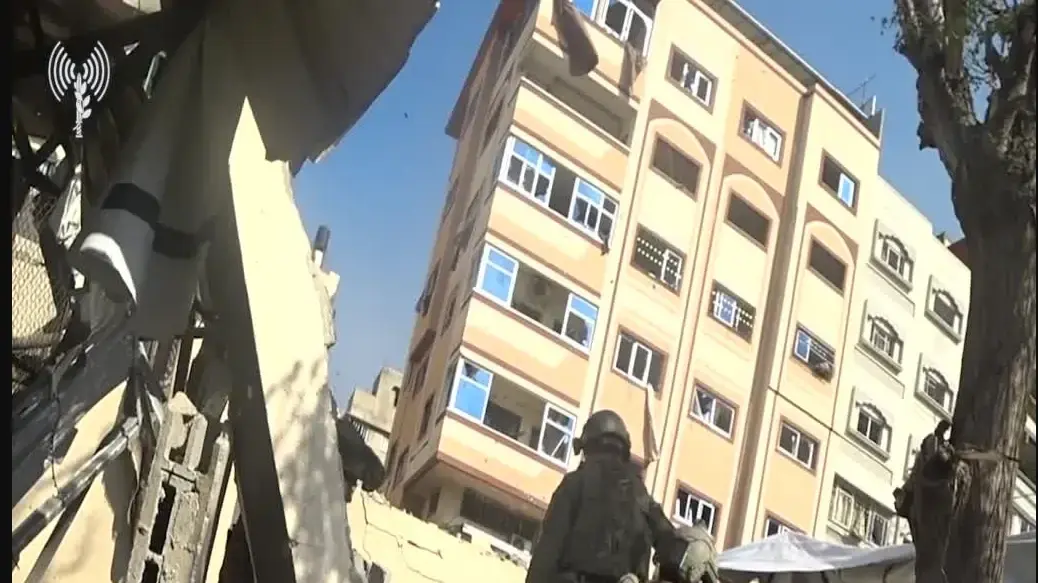

/cloudfront-eu-central-1.images.arcpublishing.com/prisa/M2RGMO7HEREXNKZNVZZBUVB3DU.jpg)